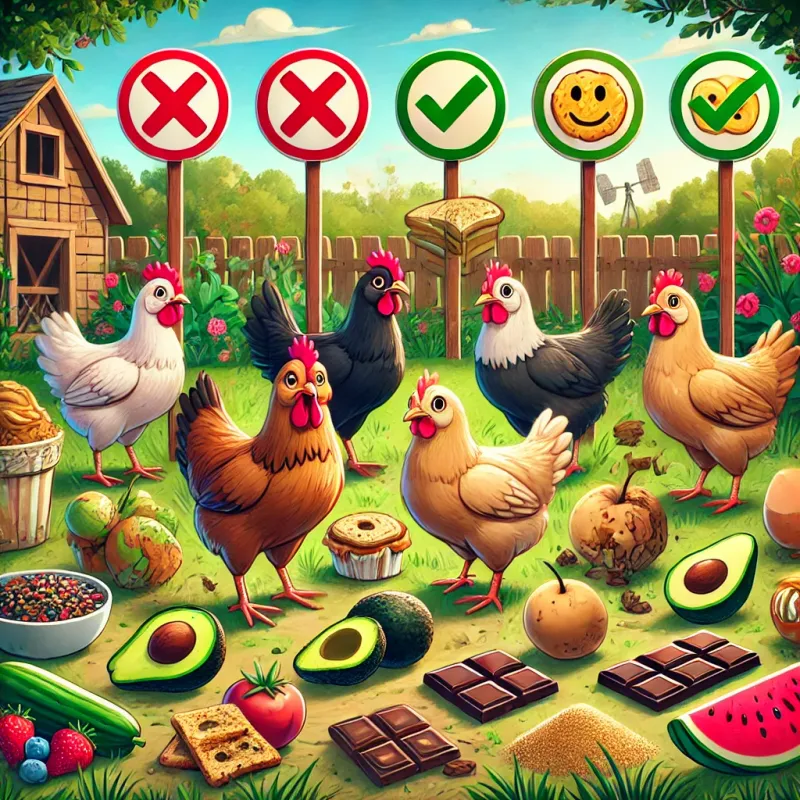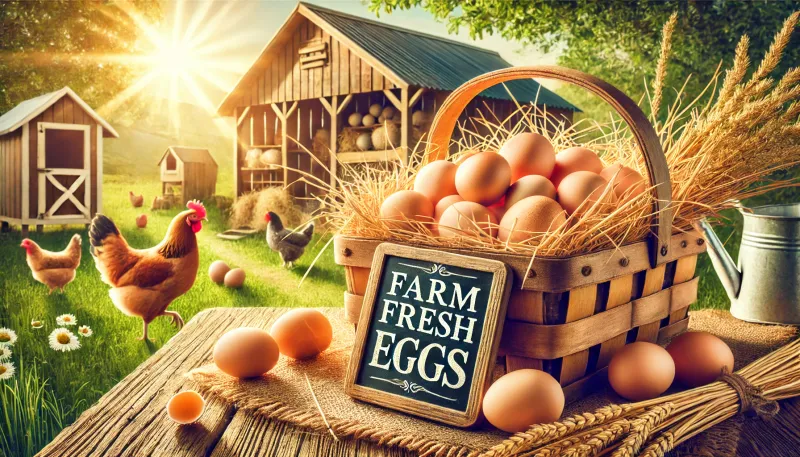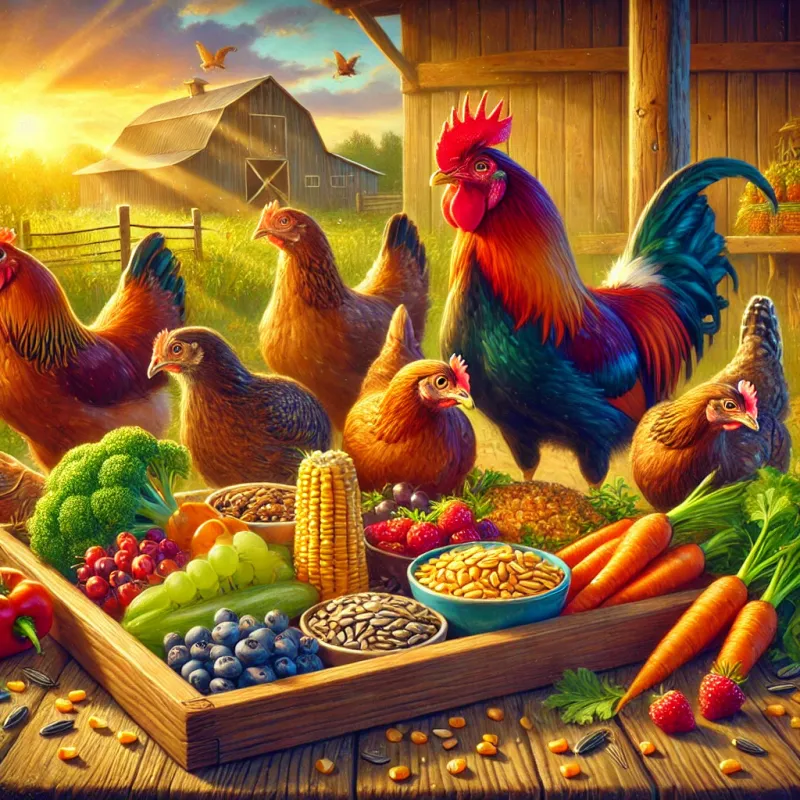Published on 2024-09-18 20:05
What Foods Should I Not Feed My Chickens?
Raising backyard chickens is a rewarding experience, offering fresh eggs, natural pest control, and a bit of farm life charm. Chickens are known to eat just about anything, from bugs to scraps, but not everything is safe for them. Certain foods can be harmful or even deadly to your flock. Here’s a guide to what you should never feed your chickens.
1. Avocado (Pit and Skin)
The skin and pit of an avocado contain a toxin called persin that is dangerous to chickens and many other animals. Consuming it can lead to breathing difficulties, heart issues, and even death. The flesh of the avocado is less harmful in small amounts but still best avoided.
2. Raw or Undercooked Beans
Raw beans, especially kidney beans, contain a toxin called phytohemagglutinin, which is highly toxic to chickens. Even a small amount can cause poisoning. Always make sure beans are fully cooked before feeding them to your chickens.
3. Green or Sprouted Potatoes
Potatoes belong to the nightshade family, and green or sprouted potatoes contain solanine, a glycoalkaloid poison. If your chickens consume this, they may experience lethargy, weakness, or even death. It’s best to avoid feeding them potatoes altogether unless they are fully cooked and free of green spots.
4. Chocolate
Chocolate contains theobromine, which is toxic to many animals, including chickens. Even small amounts can lead to heart problems, hyperactivity, or seizures. Keep all chocolate and cocoa products away from your flock.
5. Moldy or Rotten Food
Chickens are opportunistic eaters, but feeding them moldy or spoiled food can lead to mycotoxin poisoning. Mold can grow on a variety of foods, especially grains and bread, which may cause respiratory issues, immune suppression, or death in chickens.
6. Onions
Onions contain thiosulphate, which can lead to hemolytic anemia in chickens, destroying their red blood cells. While a small amount might not cause immediate harm, it’s best to avoid giving your flock onions altogether to prevent long-term health issues.
7. Garlic in Large Quantities
Though garlic is sometimes used in small amounts to promote immune health in chickens, large quantities can cause anemia and other health problems due to the same compound found in onions (thiosulphate). If you’re using garlic as a supplement, moderation is key.
8. Citrus Fruits
Citrus fruits like lemons, limes, and oranges can interfere with calcium absorption, potentially leading to weak eggshells or laying issues. While chickens may nibble on citrus peels, it’s not recommended to feed them large quantities of any citrus fruits.
9. Raw Eggs
Feeding raw eggs to chickens can encourage them to develop the bad habit of egg eating. Once a chicken gets a taste for eggs, it can be difficult to break the behavior, and it can negatively affect your egg production. If you need to feed them eggs, cook them first.
10. Salty Foods
Chickens have difficulty processing excessive salt, which can lead to salt poisoning. Symptoms include diarrhea, extreme thirst, and sometimes death. Avoid giving your chickens processed foods that contain high levels of salt.
11. Alcohol and Caffeinated Beverages
Alcohol and caffeine can have similar effects on chickens as they do on humans, but much more dangerous. These substances can cause heart issues, hyperactivity, and seizures in chickens. Keep drinks like coffee, tea, soda, and alcohol far away from them.
12. Rhubarb Leaves
Rhubarb leaves contain oxalic acid, which is toxic to chickens and can cause symptoms such as vomiting, diarrhea, or difficulty breathing. While the stalks are safe for human consumption when cooked, the leaves should never be fed to chickens.
13. Unripe Tomatoes and Eggplants
Similar to potatoes, unripe tomatoes and eggplants belong to the nightshade family and contain solanine, which is harmful to chickens. Make sure any tomatoes or eggplants are fully ripe before feeding them to your flock.
14. Greasy or Sugary Foods
Foods that are high in fat or sugar aren’t just unhealthy for humans; they are bad for chickens too. These foods can lead to obesity, heart problems, and reduced egg production. Stick to natural, healthy treats for your chickens instead of fatty leftovers.
Safe Treats for Chickens
While there are many foods you should avoid giving to your chickens, there are plenty of healthy treats that your flock will love:
- Fruits: Berries, watermelon, apples (without seeds), and bananas.
- Vegetables: Carrots, peas, cucumbers, lettuce, and squash.
- Grains: Oats, corn, and rice (cooked or uncooked).
- Protein: Mealworms, scrambled eggs (cooked), and seeds.
Conclusion
Understanding what foods are harmful to chickens is essential to keeping a healthy and productive flock. Stick to safe treats, and your chickens will thank you with better health, stronger eggs, and vibrant personalities!
← Back to blog




